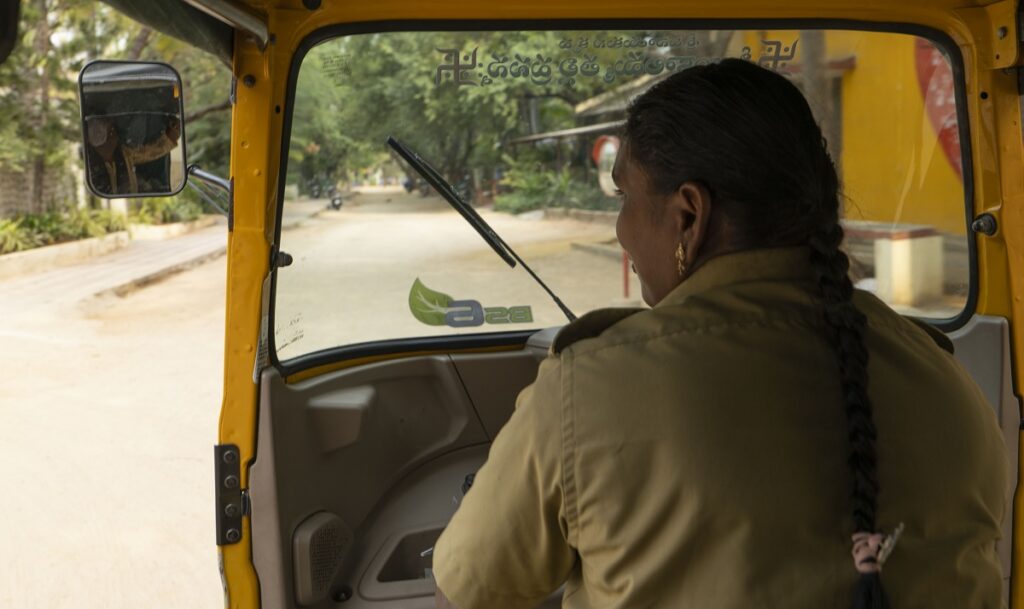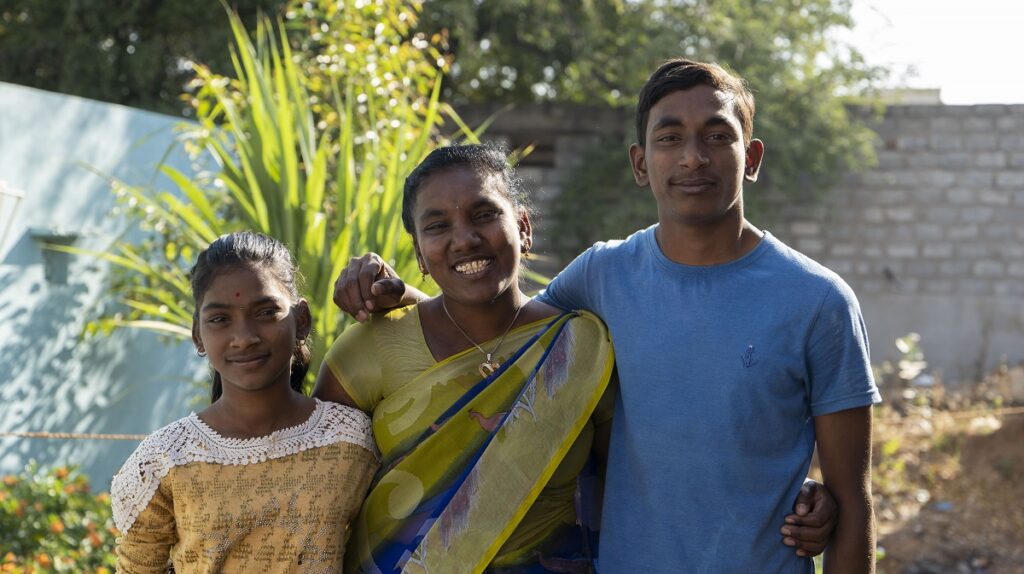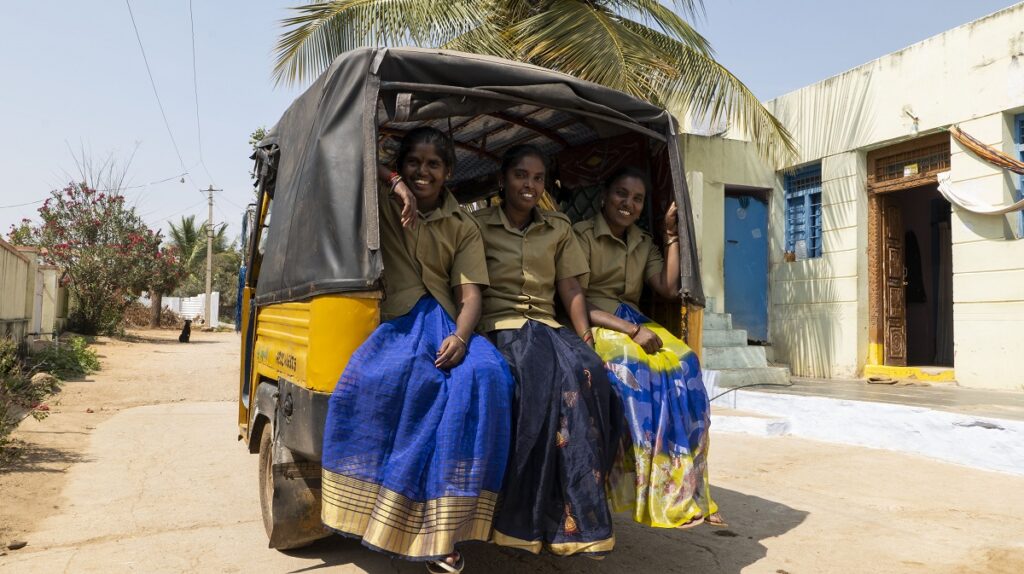Home > Blogs
Riding Towards Equality
In rural India, driving is still considered a male job. Twenty-three women from Anantapur decide to get behind the wheel and receive driving training, in the process breaking gender barriers and conquering spaces from which they are excluded due to their single motherhood.
Nagalakshmi adjusts the mirror for the first time and can’t help but smile. In its reflection, she sees the girl who never learned to ride a bicycle because she was afraid of falling. Today, twenty years later, this young woman from the outskirts of Anantapur has become one of the first female drivers of a rickshaw, the picturesque three-wheeled vehicle that reigns supreme on the streets of India.
She has overcome numerous potholes to get here. However, this time it was clear that fear, nor the opinions of others, would stand in her way. “One day, I left early for work and a neighbor scolded me. He told me that if I was a widow, I shouldn’t leave the house,” she recalls.
In rural India, widowed women are often considered the bearers of bad luck, often avoided by their communities due to superstition, though their situation is slowly changing. At 30 years old, Nagalakshmi refuses to live on the fringes of society and has decided that from now on, she will lead her own life.
“There are days when I look back and I get sad. They married me off at the age of 11 to a man who had already been married. I was his fifth wife,” she says. Newly married, Nagalakshmi moved in with her husband and in-laws. “I was just a girl. I remember that one day I was cooking with hot oil and burned half of my body. I spent three years going to the hospital to get cures,” she adds.
Nagalakshmi was only 17 years old when she was widowed, left with nothing but two babies and a debt incurred by her husband. “We had nothing to eat and none of my relatives supported me,” she says as she places her hands on the handlebars. A tattoo peeks out on her forearm: the names of her son and daughter, Dhanujaya and Dhanalakshmi, both now teenagers. “I really like that my mother drives a rickshaw. Other women see my mother as an inspiration when they see her driving,” professes Dhanalakshmi, 14.
She barely knows how to write, however it only took her a month to get her driver’s license. It was the first time she had been back in the classroom since she was forced to drop out of school to get married. From her childhood, Nagalakshmi fondly remembers the recess games they would play such as kabaddi or kho-kho, but also recalls the sadness she felt knowing she would never study again.
Today the young mother is proud to ensure that, thanks to her rickshaw, her children’s education can progress with ease. “People from the town gossiped when I left the house; they didn’t believe me when I told them I was going to a driving course. My mother didn’t want me to go to classes either, but I convinced her. Now, thanks to my rickshaw, I can give my children a higher education and a better future. I no longer depend on anyone,” she says while starting the engine.
Through her rickshaw driving, Nagalakshmi has been able to establish her full economic independence. In addition to her daily route between Anantapur, Uppanesinapalli, and her village, the three-wheeler has allowed her to start and expand her business. “I take the rickshaw to Garladinne. I buy guavas there for 20 rupees and resell them for 60, it’s a good profit,” she says, beaming.
Loaded with fruit, Nagalakshmi heads out for her monthly get-together with her friends Aruna and Pullamma. They are all a part of the female rickshaw drivers training program provided by our local partner in India, the Rural Development Trust last December, aimed at empowering 23 single and vulnerable mothers. “We have not only learned how to drive, but also what to do in cases of accident or harassment,” Aruna points out.
“I have seen the change in these women. If they initially believed that they would never manage to drive, they now drive with total confidence,” adds driving instructor Rama Mohan with pride. In addition to road regulations, the training includes self-defense classes, use of mobile applications for taxis, basic knowledge of mechanics, first aid, and emotional management sessions. He adds: “We had to lengthen the training because the bonds that had been created between the women were so strong that they did not want to return to their homes.”
With their rickshaws, Nagalakshmi and her companions have become leaders in their community and have conquered a public space that was denied to them due to their status as not just women, but widowed women.
Text: Eva Galindo Soriano adapted by VFF USA
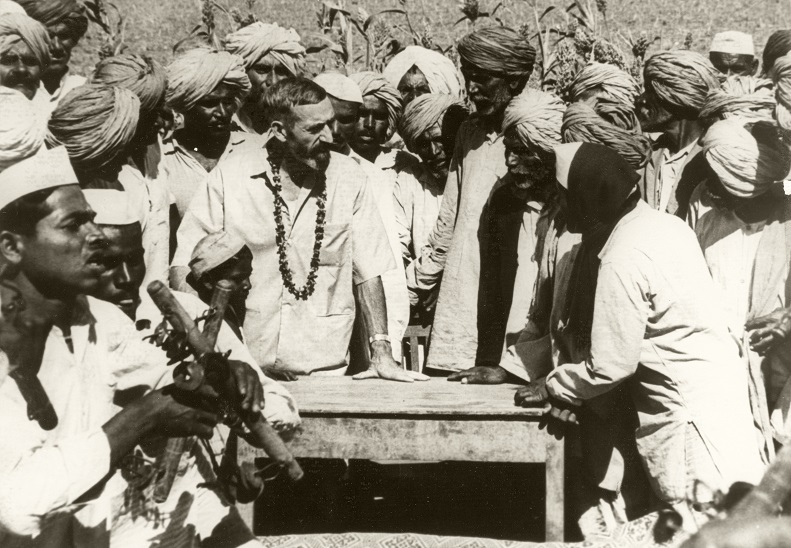
Commemorating 55 Years of the Rural Development Trust (RDT)
01/22/2024Today we commemorate the arrival of Anna Ferrer and Vicente Ferrer to Anantapur and the be...
READ MORE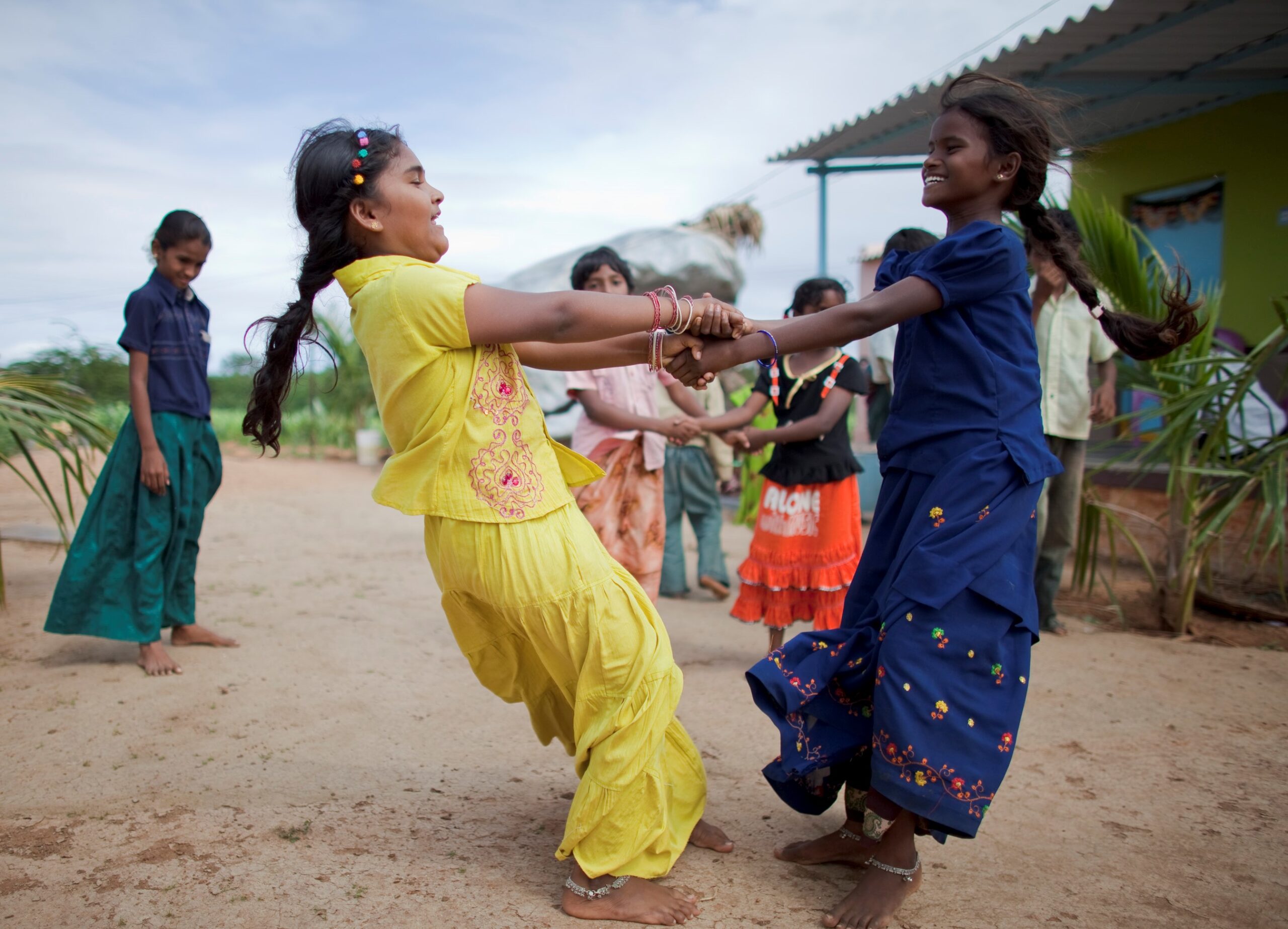
VFF USA & the SDGs: A Bastion of Hope by Suporna Chaudhuri
08/21/2023The United Nations’ Sustainable Development Goals (SDGs) comprise a mosaic of principles...
READ MORE
Empowering Dreams: VFF USA’s Journey at NATA Convention 2023
07/20/2023In the heart of Dallas, the NATA Convention 2023 was a lively gathering of people f...
READ MORESupport our work to help individuals and communities affected by COVID-19
Would you like to know how we use the funds?LEARN MORE
 February 27, 2023
February 27, 2023